Understanding Vascular Health: When to See a Specialist Like Dr. Desai
Vascular health is essential to overall well-being, but many people overlook the importance of maintaining their veins and arteries. The vascular system, comprising veins, arteries, and capillaries, carries blood to and from the heart to various parts of the body. Without a healthy vascular system, other vital organs and tissues cannot function properly, leading to serious health issues. In this blog, we’ll explore why vascular health matters, signs that indicate you need to see a vascular specialist like Dr. Desai, and how early intervention can help prevent complications.
What Is Vascular Health?
Vascular health refers to the condition of your blood vessels, including arteries and veins. It involves the circulation of blood through your body, ensuring that nutrients, oxygen, and waste products are carried to and from the organs and tissues. Proper blood flow is critical for overall health because it ensures your heart, brain, kidneys, and other organs receive the nutrients and oxygen they need to function correctly.
Over time, various factors such as age, lifestyle choices, genetics, and environmental influences can affect vascular health. Conditions like high blood pressure, high cholesterol, and diabetes can cause damage to blood vessels, leading to serious complications like heart disease, stroke, and vein-related disorders. Therefore, understanding vascular health and how to maintain it is essential for a long, healthy life.
Why Is Vascular Health Important?
Vascular health directly impacts how well blood circulates throughout your body. Healthy veins and arteries ensure that blood flows smoothly to every organ, while also preventing clots, blockages, and other serious conditions. Poor vascular health can result in:
- Heart Disease: If the blood vessels supplying the heart become narrowed or blocked, it can lead to coronary artery disease, increasing the risk of heart attacks.
- Stroke: Poor circulation can lead to the formation of blood clots, which can block blood flow to the brain, resulting in a stroke.
- Peripheral Artery Disease (PAD): PAD occurs when the arteries supplying blood to the limbs become narrowed, reducing blood flow to the legs and feet.
- Varicose Veins: Weak or damaged valves in the veins can cause blood to pool, leading to bulging veins and discomfort.
- Chronic Venous Insufficiency: This occurs when the veins in the legs cannot pump blood effectively, leading to swelling, pain, and skin changes.
Maintaining vascular health is crucial not only to avoid the risks of these conditions but also to ensure a high quality of life.
When to See a Specialist Like Dr. Desai
It’s not always easy to identify when vascular issues are developing, but some signs should not be ignored. Dr. Desai, a vascular health specialist, has extensive experience diagnosing and treating conditions related to the vascular system. Here are some warning signs that indicate it might be time to see a vascular specialist:
1. Chronic Leg Pain or Cramps
Leg pain that doesn’t go away after rest could signal problems with your blood flow. This might be a sign of Peripheral Artery Disease (PAD), which can cause pain, cramping, or weakness in the legs. If you experience leg pain while walking or exercising, but the pain eases with rest, this could indicate reduced blood flow to the legs.
Dr. Desai can evaluate your circulation and offer treatments that improve blood flow, preventing further complications.
2. Swollen Legs or Feet
Swelling in the legs, ankles, or feet can be caused by fluid retention due to poor venous circulation, leading to conditions like chronic venous insufficiency. If your legs feel swollen, heavy, or achy, it’s important to consult a specialist. Swelling can also indicate blood clots or other vascular diseases that need medical attention.
A vascular specialist like Dr. Desai can diagnose the underlying cause of the swelling and recommend treatments such as compression therapy or minimally invasive procedures.
3. Varicose Veins or Spider Veins
Varicose veins are swollen, twisted veins that are visible just below the skin’s surface, typically in the legs. They occur when the valves inside the veins weaken, causing blood to pool and veins to stretch. Spider veins, smaller and less severe than varicose veins, can also appear in a similar way.
If you have varicose veins, particularly if they’re causing pain, discomfort, or affecting your self-esteem, Dr. Desai can offer solutions like sclerotherapy or endovenous laser treatment to alleviate the symptoms and prevent further complications.
4. Wounds or Ulcers that Won’t Heal
Chronic wounds or ulcers, especially in the legs or feet, can indicate poor circulation, a condition known as ischemia. Without proper blood flow, tissues cannot heal properly, making it harder for cuts, scrapes, and other injuries to recover. If you have a wound that won’t heal, it’s essential to see a vascular specialist.
Dr. Desai can assess your blood flow and recommend treatments to improve circulation, promoting healing and reducing the risk of further complications.
5. Numbness or Coldness in Limbs
If you experience numbness, coldness, or a tingling sensation in your arms or legs, it could indicate poor circulation due to vascular disease. This is especially true if these sensations are accompanied by pain or discomfort.
A vascular specialist like Dr. Desai can perform tests to diagnose the cause of these symptoms and suggest treatments to restore proper blood flow.
6. Family History of Vascular Disease
If your family has a history of vascular conditions such as heart disease, stroke, or varicose veins, you may be at higher risk of developing these conditions yourself. Seeing a vascular specialist for early screening and preventative care is a proactive way to maintain your vascular health and catch potential problems before they worsen.
Dr. Desai can help you understand your risks and take preventive measures to keep your vascular system in optimal condition.
How Dr. Desai Can Help
Dr. Desai is a highly trained vascular specialist who uses advanced diagnostic tools and treatment options to address a wide range of vascular conditions. Here are some ways he can help:
- Diagnosis and Screening: Through non-invasive tests like ultrasound and angiograms, Dr. Desai can assess your vascular health and diagnose conditions like PAD, varicose veins, and arterial blockages.
- Minimally Invasive Treatments: For conditions like varicose veins, Dr. Desai offers minimally invasive procedures such as sclerotherapy, laser therapy, and endovenous thermal ablation to eliminate veins that cause pain and swelling.
- Surgical Interventions: In more severe cases, surgery may be necessary to remove blockages or repair damaged arteries. Dr. Desai offers safe and effective surgical solutions when needed.
- Prevention and Education: Dr. Desai provides personalized advice on lifestyle changes, such as exercise, diet, and smoking cessation, to help you reduce your risk of developing vascular disease.
6 FAQs about Vascular Health
What is the main cause of vascular disease?
Vascular disease is often caused by the buildup of plaque in the arteries, a condition called atherosclerosis. Risk factors include high blood pressure, high cholesterol, smoking, and diabetes. Genetics also play a role in the development of vascular conditions. If you are concerned about your vascular health, consulting a vascular surgeon in Houston can provide expert advice and guidance.
How can I prevent vascular problems?
Maintaining a healthy lifestyle is key to preventing vascular issues. Eat a balanced diet, exercise regularly, quit smoking, and manage chronic conditions like high blood pressure and diabetes. Regular check-ups with a specialist can also help detect issues early. If you need specialized care, consider visiting a vascular surgeon in Houston TX to stay proactive with your health.
Are varicose veins dangerous?
Varicose veins are usually not dangerous but can cause discomfort, pain, or swelling. If left untreated, they may lead to complications such as blood clots or skin ulcers. If varicose veins are causing pain, a vascular specialist can recommend treatment. A vascular surgeon in Houston will evaluate your condition and recommend the best course of action.
How do I know if I need a vascular specialist?
If you experience symptoms like leg pain, swelling, varicose veins, numbness, or chronic wounds, it may be time to see a vascular specialist. A doctor can assess your symptoms and determine the best course of action. If you’re looking for a trusted expert, Dr. Desai in Houston provides excellent care for various vascular conditions. Visit Dr. Desai Houston to learn more.
Is surgery always required for vascular issues?
Not always. Many vascular problems can be treated with minimally invasive procedures like laser therapy or sclerotherapy. Surgery may be necessary in severe cases, but it is typically considered a last resort. If you are exploring non-invasive options, a vascular surgeon in Houston can guide you through the best treatment choices.
How often should I get screened for vascular disease?
If you have risk factors like a family history of vascular disease or conditions like high blood pressure or diabetes, regular screenings are important. Ask Dr. Desai for personalized advice on how often you should be checked. For specialized screening and treatment, vascular surgeons in Texas offer a range of services to help maintain your vascular health.
Conclusion
Vascular health is vital to your overall well-being, and taking care of your veins and arteries can prevent serious complications down the line. If you’re experiencing symptoms like chronic leg pain, swelling, or varicose veins, it’s time to consult a vascular specialist like Dr. Desai. Early detection and treatment can improve your quality of life and reduce the risk of more severe vascular conditions in the future. Don’t wait—take charge of your vascular health today.
Recent Posts
-

10 Daily Habits That Help Prevent Varicose Veins Naturally
February 23, 2026 -

7 Tips for Healthy Legs During Long-Distance Travel
February 9, 2026 -

How to Reduce Leg Swelling (Edema) Fast at Home: 7 Proven Methods
February 2, 2026 -

10 Anti-Inflammatory Foods That Protect Your Blood Vessels
January 21, 2026 -
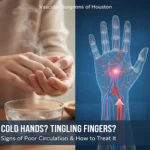
5 Signs of Poor Circulation and How to Fix It
January 15, 2026 -

15 Yoga Poses to Improve Blood Circulation in Your Legs
January 9, 2026 -

10 Things You Can Do Today for a Healthier Heart and Better Flow
January 7, 2026 -

7 Effective Exercises for Chronic Venous Insufficiency
December 23, 2025 -

10 Superfoods That Improve Your Blood Circulation Naturally
December 23, 2025 -
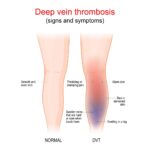
Blood Clot in Leg Treatment in Houston: Expert DVT Care 2026
December 19, 2025 -
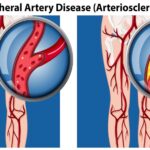
How Laser Ablation Can Help with Chronic Pain: Houston’s Leading Solutions
December 8, 2025 -
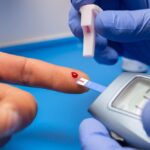
How Diabetes Affects Your Vascular Health
December 3, 2025 -
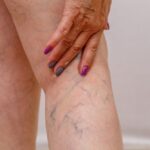
What Causes Varicose Veins in Your Legs?
December 3, 2025 -

Top 5 Signs You Need to Consult the Best Doctor for Vascular Surgery
December 3, 2025 -

Top 10 Vascular Surgeons in Texas: A Comprehensive Guide
December 3, 2025 -
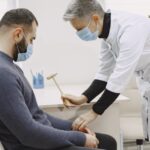
5 Key Factors to Consider When Choosing the Best Vein Specialist
November 3, 2025 -
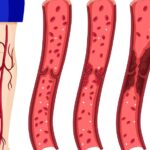
The Causes, Symptoms, and Treatments of Peripheral Venous Disease
November 3, 2025 -

Expert Limb Preservation Services in Houston Hospitals
November 3, 2025 -

Top 5 Vein Specialists in Houston: Expert Guide 2026
November 3, 2025 -
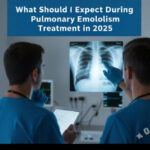
What Should I Expect During Pulmonary Embolism Treatment in 2026
September 30, 2025 -

Top 10 Vascular Surgeons in Texas | Best Vascular Specialists 2025
September 12, 2025 -

Choosing Minimally Invasive Vascular Surgery: A Comprehensive Guide
September 11, 2025 -

Top 5 Houston Vascular Surgeons for Effective Vein Care
August 26, 2025 -

Top 5 Signs You Need to See a Vascular Surgeon in Houston
August 19, 2025 -

How to Choose the Best Vascular Surgeon in Houston: A Complete Guide
August 18, 2025 -
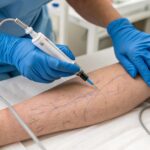
Understanding Vascular Health: When to See a Specialist Like Dr. Desai
July 28, 2025 -

Why Do I Need to See a Vascular Surgeon for PAD?
July 21, 2025 -
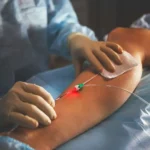
Top 5 Signs It’s Time for Varicose Vein Treatment
July 7, 2025 -
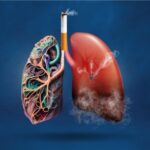
How Smoking Affects Your Vascular Health? Discover the Risks of AAA, PAD, and Stroke
July 4, 2025 -
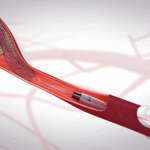
Preventing Strokes with TCAR: Revolutionary Treatment Now Available in Cypress
June 23, 2025 -

Minimally Invasive Vascular Surgery: Advanced Treatments for Complex Conditions
June 16, 2025 -
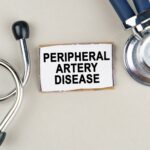
Peripheral Arterial Disease (PAD): What You Need to Know About Symptoms and Treatment
June 10, 2025 -
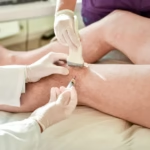
How Endovenous Laser Ablation is Changing Varicose Vein Treatment in Cypress
June 5, 2025 -

Best Vascular Surgeons in Houston: How to Choose the Right Specialist
June 5, 2025 -
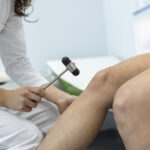
Houston’s Best Varicose Vein Treatments: Expert Advice for Vascular Health
March 10, 2025 -

Meet Dr. Neil Desai: Cypress’s Trusted Vascular Surgery Expert
March 10, 2025 -
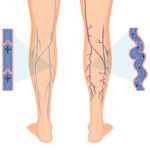
Top Solutions for Varicose Veins: Finding the Best Treatment in Houston
March 10, 2025
Contact Us
Important Links
Practice Location
- © Dr. Neil Desai, Vascular Surgeon Cypress, Houston, TX

